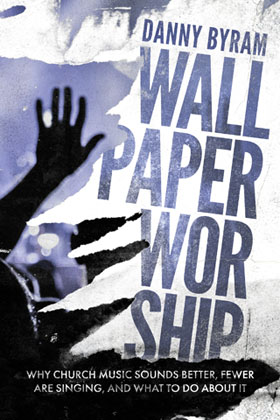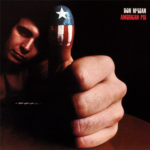loading...
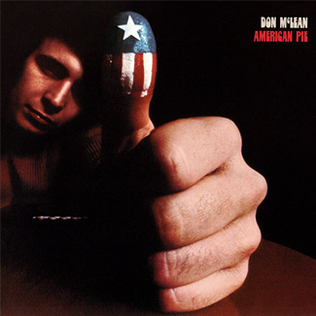
by Danny Byram | Jun 16, 2020 | Church Leadership, Coronavirus
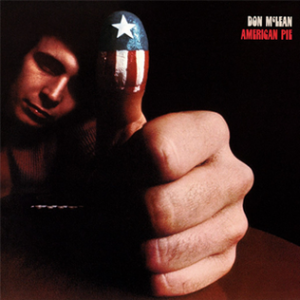
As I was sitting at the car dealership having my car serviced, the background wallpaper music was playing classic pop songs. The iconic “American Pie” caught my ear and I nostalgically listened. The last verse, the most haunting of all six verses, seemed more relevant now than when it was first released in 1971 – I was in middle school:
I met a girl who sang the blues
And I asked her for some happy news
But she just smiled and turned away
So I went down to the Sacred Store
Where I’d heard the music years before
But the man there said the music wouldn’t play
And in the streets the children screamed
The lovers cried, and the poets dreamed
Not a word was spoken
The church bells all were broken
So, let’s break down these lines of American Pie ala 2020:
I met a girl who sang the blues
And I asked her for some happy news
But she just smiled and turned away
“Happy news” is rare today. When I do hear “happy news” I confess I find myself feeling manipulated as if someone is trying to sell me something. I know – I can be a cynic. But we have to admit the reality we are currently living through is real, and it is not good.
Good is not necessarily happy. Good is the behavior of those who choose good over evil – those who recognize good as good and evil as evil – the wise ones, who do not confuse the two. The Bible teaches that goodness is a fruit of the Spirit of Christ, living and operating inside the heart and outwardly through the behavior of those who surrender to Him.
Next lines:
So I went down to the Sacred Store
Where I’d heard the music years before
But the man there said the music wouldn’t play
A church staffer friend of mine told me their church has decided when they start meeting together again, group singing would still be banned for fear of spreading the coronavirus. But of course, passively listening to musicians performing songs, which 50% or more of congregants don’t know and can’t sing along with, has been the new-normal now for at least a decade (see my book Wallpaper Worship).
But societally, when things fall apart, if there is any place to go “hear the music” it would be at the local “Sacred Store,” right? Is it error for the church to let fear redefine the identity of corporate worship? Perhaps. Yet in many Sacred Stores this new-new normal has been established.
Next lines:
And in the streets the children screamed
The lovers cried, and the poets dreamed
Not a word was spoken
The church bells all were broken
Just turn on your favorite cable news outlet and see these lyrics come alive before your eyes. But understand: my generation watched the civil rights marches (peaceful) and riots (violent). We watched college campus take-overs by radicals, Vietnam war protests, National Guard opening fire on students at Kent State University, all in the name of “social change – will-of-the-people – civil disobedience.”
It all reminds me of Jesus’ words (Matthew 24): “And because lawlessness will be increased, the love of many will grow cold.” For a nation that prides itself on being a “nation of laws,” America is not recognizable, once again.
The final lines of American Pie are:
And the three men I admire most
The Father, Son, and the Holy Ghost
They caught the last train for the coast
The day the music died
As much as it may seem to some God has abandoned us, the Bible, through its history and its theology makes the opposite claim. The Spirit of God is always with us, in seasons of trouble as well as peace. History proves God’s word and work continue and even thrive in times of turbulence.
So, in conclusion, what’s the “happy” news?
Psalm 11 opens with a relevant question for these turbulent times:
“The foundations of law and order have collapsed. What can the righteous do?”
The Psalmist asks the above question in verse 3 but has already given the answer in verse 1:
“I trust in the Lord for protection. So why do you say to me, “Fly like a bird to the mountains for safety!”
I believe the solution in America is simpler than we want it to be. We should not fly to the mountains for safety when the foundations of law and order start to collapse. Instead, we must do our civil duty to peacefully replace those who use our government for evil with those who will use our government for good. Remember? The wise ones who don’t call good evil and evil good.
And after we – in our best judgment – have executed our peaceful, lawful duty, we must trust in the Lord for protection – while keeping a wary eye on those who lead at all governmental levels.
“It is true that Christians, so far as they themselves are concerned, are subject neither to law nor sword, and have need of neither. But take heed and first fill the world with real Christians before you attempt to rule it in a Christian manner.
This you will never accomplish, for the world and the masses are and always will be unchristian.” – Martin Luther
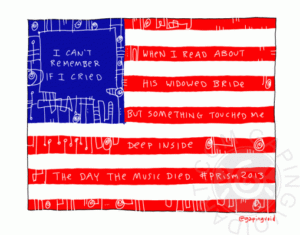
American Pie by Don McLean; © Universal Music Publishing Group

by Danny Byram | May 11, 2020 | christian worship, church, Church Leadership, Coronavirus, COVID19, Leadership, prayer, Surprise, Worship

On Sunday, January 5, Angela and I heard a new year’s sermon we thought was gutsy, thoughtful, realistic, and now, prophetic. This pastor told his congregation “This year may be the worst year of your life, filled with death, destruction, fear, and mayhem. To tell you ‘happy new year’ may be the most painful thing you could be told.” Yet he spoke of trust in God, that even what could turn out to be your worst year, could be your greatest. Personally, I don’t like sermons that point to victory without embracing hardship. This pastor minced no words. He was honest and mature.
Interesting how little we knew a few months ago, isn’t it? Needless to say, our plans for 2020 have come to a screeching halt. Like you, we are waiting, preparing, praying, and listening.
Last year, I read a book entitled “The Sin Of Certainty” by Peter Enns. In this challenging and often uncomfortable book, Enns says: “When we reach that point where things simply make no sense when our thinking about God and life no longer line up, when any sense of certainty is gone, and when we can find no reason to trust God but we still do, that is what trust looks like at its brightest.”
We see this “trusting-God-when-all-else-fails” throughout Bible stories and church history. (See my blog of March 29.) Yet as 21st century Americans, we shelter ourselves from experiencing hardships that make us “trust God when all else fails.” Sure, there are those who have experienced great personal tragedy: loss of a loved one, a failed business, loss of a job. Yet, so often the American dream and much of our Christian messages morph into figuring out how to put ourselves in a position where “all else fails” doesn’t happen.
Until now.
Never in our lifetime have we experienced anything on the global scale like we are witnessing through the COVID-19 pandemic, and the economic ruin that likely awaits us as we stagger through months of quarantine and sequestering. No one can predict what the results of this parenthetical time will be.
So, here are some questions we must ask ourselves: Will we trust God in sickness, in health, in death as well as in life? Or are we frustrated God is not producing what we want when we want it? Or worse, are we running scared?
As for me, I refuse to offer glib answers and clichés. I simply want to encourage myself and my family to walk the way others before us have walked through plagues, famines, and hardships in life and death. All we can do is trust the living and eternal triune God of the scriptures. In the end, we will see: trusting Him is enough.
I believe our 2020 plans are not for naught. In the meantime, we wait; we trust. We must.
“Come my people, enter into your rooms and close the door behind you. Hide for a little while until indignation runs its course.” Isaiah 26:20


by Danny Byram | Mar 29, 2020 | christian worship, Church Leadership, Leadership, pastor, wallpaper worship, Worship, worshipleader

As much as we may think what’s happening today is rare – which it is in western civilization over the past few hundred years – it’s happened before. The church has found itself unable to meet together throughout history.
For example, during the black plague of the medieval period, many local churches were simply wiped out because entire memberships died. After the Reformation, churches were raided and worshipers killed for following Luther’s teachings – and vice versa, driving worshipers away from corporate gatherings and into their homes. During the Thirty Years War in Europe (1618-1648) deaths were so common and devastating that many simply found it discouraging to gather for corporate worship. Home-based gatherings thrived.
In mid-19th century America, the Civil War caused similar devastation resulting in some abandonment of corporate meetings for worship. For instance, during the five years we resided in Franklin, TN, we attended Christ Community Church, which at the time was gathering in the old First Baptist building, not far from the historic site of the Battle of Franklin (a late-in-the-war failed attempt by Confederates to take back their Union-occupied town).
During our time at the Franklin church, a staffer found the archives of the original First Baptist which had attendance rolls dating back to the early 1800s. Following the Battle of Franklin, no one met for worship for a long period. Reason? Every male member of the church was killed. Only a grandpa and his granddaughter met Sunday after Sunday. Apparently, the widows could not bring themselves to gather for worship socially. Too much sadness.
The most familiar stories to Christians of “house church” are the references throughout Acts of The Apostles, as they met from home to home for meals, chanting, reading of the Psalms and Prophets and later, the public readings of Paul’s letters. The first three centuries of church persecution guaranteed that corporate worship gatherings were not even a consideration. Christians met in secret until Constantine made Christianity the official religion of the Roman Empire. The church-empire began: cathedrals, churches, schools, and monasteries started to pop up everywhere. Then, the black plague hit and the cycle repeated.
Persecution, wars, and diseases come and go. So do movements that change the way the church worships. It’s inevitable. Something eventually happens that changes how the church worships because each crisis causes the church to recalibrate how she sees herself and her role in society. The church traditionally doesn’t change itself from the inside. The church remains comfortable until tragedies change her. Those come in cycles.
In my book Wallpaper Worship, published May 2018, I wrote: “I believe there is a new movement coming that will transform the body of Christ and change how we view and do worship. No one knows where it will come from or what the surrounding context of its coming will be. But I believe it is coming. ‘Wallpaper worship’ (corporate gatherings of worshipers observing rather than participating) thrives in times of great prosperity and dies in seasons of persecution or hardship.” (Chapter 13).
With COVID-19 overtaking the globe and dismantling the world’s economy, the question the church needs to be asking is larger than “how do we meet together” or “how do we collect offerings to pay for our staff, empty venues, and our production gear.” We’ve already figured out those solutions through the internet.
The deeper question, I believe, is: Will this crisis change the way the church sees herself within the culture – and will the crisis change the nature of how the church worships corporately?
Is the church in the USA going to be different after this crisis or will we just take up where we left off when COVID-19 passes and chalk it up for “victory” as people gather once again, nuzzle in their seats, watch the platform performance, sip coffee and take communion in isolation?
Questions of lesser importance will waste what this crisis can teach us – or more importantly – how this crisis could transform us.
“For I am about to do something new. See, I have already begun! Do you not see it?” Isaiah 43:19 (NLT)

by Danny Byram | Feb 28, 2020 | christian worship, church, Church Leadership, Leadership, Music & Songwriting, pastor, wallpaper worship, Worship, worship songs, worshipleader, worshipmusic

If you’re thinking “Oh brother! Here we go…another legalistic churchy rule,” stay with me. It’s not. Let’s level the field: if you’re using pop songs in worship, I do not universally condemn it.
When I was on a large church staff with a wide talent pool, I used to perform pop songs periodically and really enjoyed it. It was a thrill to connect a lyrical parallel in a popular song with a sermon and to make the song sound like the recording performed live.
IT CAN WORK
One of my most effective experiences was when our pastor gave a sermon on “God wants you to join Him in His dance.” He used a clip from the Tom Hanks’ 1999 prison movie The Green Mile, in which the condemned prisoner, who happens to be innocent, has eaten his last meal before being executed and is watching his last movie, a 1930s classic with Fred Astaire and Ginger Rogers (For Those of You With No Connection to the Past, acronym FTYWNCP, Fred & Ginger were an acting/dance team that killed it in the ballroom style). The song they danced to, in the scene the prisoner watches, is “Dancing Cheek To Cheek.” (FTYWNCP, check it out on YouTube.) Watching Fred and Ginger, the prisoner says in tears, “This must be heaven. They look like angels…”
Our church’s tradition was to end each sermon with communion while the band played as people went through the line for the elements. For communion music that day we played “Dancing Cheek To Cheek.” People were in tears as they connected the sermon with communion through the song. God was inviting them to “dance with Him” and they did.
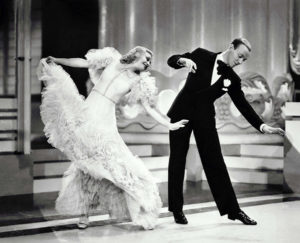
SO, IS THERE A PROBLEM?
Consider: We, in the worship music industry, have become so good at live performance (the American church spends $2 billion/year of its budgets on music/theatrical production gear) that often we perform pop songs “just because we know how.” Someone shared with me about a Nirvana song that opened a service at a megachurch. I asked, “Was it related to the sermon or service theme?” “Not that I saw or heard,” he responded. “It was just really cool.”
I have heard and seen performances in worship services of songs by Aerosmith, Justin Timberlake, Beyonce and others that are done – a) because the band knows how to and wanted to – b) to invite the unbeliever into an atmosphere that is familiar and non-threatening.
Do we really play to so many un-believers in our local worship service that we feel setting the atmosphere at their level of understanding achieves a worthy goal? If the purpose is to win them to the Gospel, is it working?
Gallup Research conducted a study of churches county by county in the USA, to find out what large and small churches spend ($) to pull off weekend worship services, and the result thereof. The study took into account building/venue costs, salaries of those who are required to execute the weekend productions (pastors, associates, musicians, crew, teachers), printed materials given away, licensing fees for use of song copyrights (CCLI), coffee bars and other related expenses. Add the $2B/year of gear purchased from production retailers. Divide those numbers by how many individuals the churches report who make life-changing commitments to the Gospel as a result of the weekend productions. Gallup’s results are that it costs the church over $1 million to convert one non-believer. If we presented this financial idea on TVs Shark Tank, the investors would pass.

THE IDEA HERE IS NOT TO SHAME US, BUT TO AWAKEN US.
Jesus’ words can guide us as we make decisions on how to musically shepherd our “audience” (aka Jesus’ sheep): “I know my sheep and they know me and hear my voice, just as my Father knows me and I know the Father. My sheep will not listen to a hired hand. A hired hand will abandon the sheep because they don’t belong to him; he runs away because he’s working only for the money and doesn’t really care about the sheep.” John 10
Why spend our time in service-planning and rehearsals to perform a song that has nothing to do with a sermon or a scriptural theme – because we want to be approved of by people who don’t know the Savior we are trying to “sell” them? What about the sheep of the Shepherd, our congregants – who come to weekend services for spiritual renewal, refreshment and teaching of the word of God? Do unrelatable pop songs – which they hear every day anyway – help meet their needs?
Francis Chan, in his book Letters To The Church said: “People are either awed by the sacred or they are not. We (leaders) have addicted our people to less.”
I quit using pop songs simply because my time leading His sheep is limited, both in the allotted weekend time and in how many weekends I have left on this planet. I choose to play to the sheep and their needs. Non-believers are welcome to come along as the Holy Spirit draws them.
I welcome your comments below. What’s your experience?

by Danny Byram | Feb 11, 2020 | Church Leadership

I just returned from New England where I led a college retreat. The students were from New Hampshire, Massachusetts, Connecticut, New York, New Jersey, and Rhode Island. They were normal college fare: loud, energetic, fun, and ate junk food. Yet they shared two things that set them apart from other college students. 1) They were all followers of Jesus; 2) They were ROTC cadets. Upon graduation, all will become leaders (officers) in various branches of our Armed Forces.
Leadership conferences are as common as houseflies. What made this one different? These future leaders were being trained to “Lead those you lead like Christ led those He led.” This training will make these Christian officers exceptional from others who simply wear the rank or the title.
TRAINED TO LEAD

The difference between ROTC leaders and young church worship leaders is training. The ROTCers learn leadership skills and regularly drill so that when they are thrust into the “real military world” they know what to do and what is expected.
Not so for many church worship leaders. Most are volunteer musicians who play and sing well yet have little if any training in leading from the platform. Many are thrust onto stage only knowing the latest songs and production hardware. The paradox is the church gives them a title that congregants quickly ascertain as inaccurate: Not “lead singer” or “leader of the band” – but worship leader.
“I HAVE NO IDEA WHAT TO DO OR SAY!”

Many worship leaders tell me they have no idea what to say or do on the platform outside of performing the music. At the ROTC conference, I was approached by a young, active duty Navy chaplain. He pastors sailors and families in his base chapel and shared his dilemma: “My worship leaders don’t know what to do or say on the platform. They think leading worship is performing 4 or 5 songs and then they sit down.” He asked me for advice. Here’s what I shared.
Training Solution 1: Get together. Go over the song lyrics with the worship leader and find a scriptural reference to have the congregation recite in unison prior to singing the song. This ties the song to the living and active word of God (Isaiah 55:11) – and the worship leader isn’t left to think of something clever to ramble about. Also, congregants get to hear their own voices.
Training Solution 2: Follow good examples. Watch a worship leader on YouTube that is effective in speaking before or after a song. Talk about what makes what they say effective. Many of us have stood through endless rambling about “what God is teaching me this week.” AKA the “coffee cue.” Most congregants come to church after surviving their own trials in the week and don’t care to listen to a musician rambling through a personal story that is more appropriate in a small group setting. Stay with the scriptures. Pastor the people.
Training Solution 3: Talking takes rehearsal. Have the worship leader share their personal story of coming to know Christ with the congregation – without hiding behind an instrument. This is a challenge for introverted worship leaders. Have them share it first in a staff meeting or small group. The extroverted and ADD types will have to discipline themselves to five minutes and to topically stay in their lane.
There is a difference between concert performing and worship leading. Whether pastors or musicians want to admit it, there is a pastoral side to leading congregants in musical worship which differentiates leading from performing. Worship leaders need to lead – not just perform songs. Congregants want to be led, not performed at.
Training in leadership is fundamental and crucial for Christian ROTC future officers. I believe it is equally crucial for worship leaders in the church environment. It takes solid training to lead well in the US military. Ditto for leading God’s army!
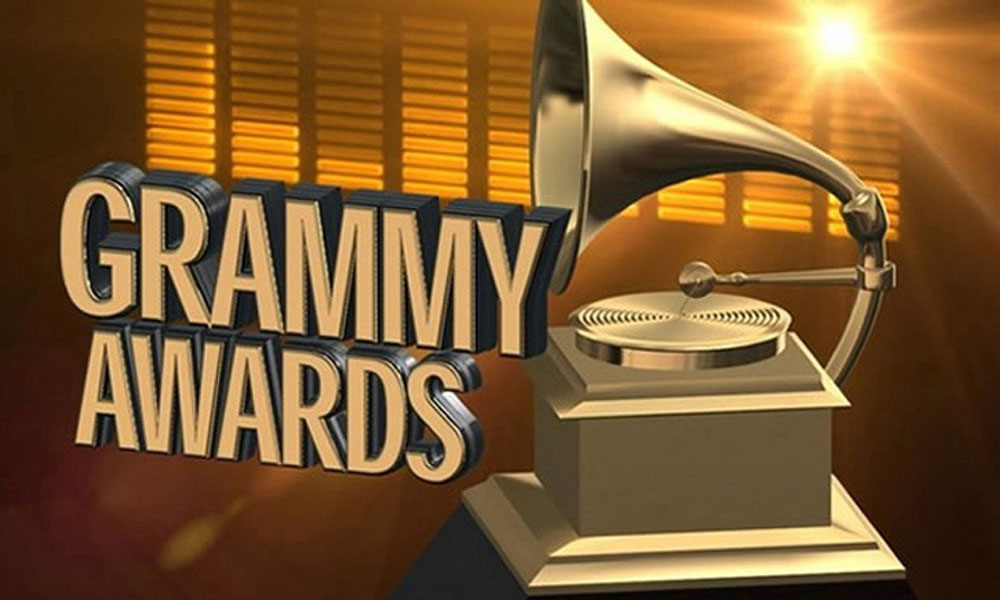
by Danny Byram | Jan 27, 2020 | christian worship, christianmusic, church, Church Leadership, Contemporary, Leadership, Music & Songwriting, pastor, praise, wallpaper worship, Worship, worship songs, worshipleader, worshipmusic

The word worship has metamorphosed. It is one of those many words floating around that once had specific meaning but has culturally morphed into new relevance. Other examples: thread, stream, post – you get the idea.
Worship used to be primarily a verb – something we did corporately or privately when we gather into a house of worship. Now it is also a noun, a traded commodity, a multi-billion-dollar industry tied to the entertainment and production-gear retail world, akin to the latest talent reality shows, playing to millions of unnamed, anonymous online fans of worship songs and worship artists. Worship has become its own style of music.
Am I cynical or a realist? Probably both. Before you go off on me with this, first consider the reactions I frequently hear from semi-professional church musicians. They cringe at playing a hymn or any music piece outside the worship model. Yet, many equally cringe with many new songs they are required to memorize. Why the cringing? Musicians will confess – quietly, behind the scenes – the musicality of worship lacks in diversity or musical creativity. In other words, if they are honest, musicians will tell you that as a style of music, worship becomes quickly rote and predictable.

Example: I had to learn the latest 12-15 most popular worship songs for an upcoming conference. I found each song on YouTube and began my rehearsal. Most start with a low synth pad sound, covered in a breathy vocal line. Then follows the rhythmic groove with guitar, bass and drums. Each track has a simple riff (ie, a basic scale pattern meant to be a musical hook played by a lead guitar or piano). Many of these riffs are so similar, it’s difficult to discern which song I am in when I hear it. They are purposely simple so they can be reproduced by volunteer musicians possessing basic skill levels; I get it.
By the middle of the songs, vocalists are full voice, the band is playing the 1-4-6-5 chord progression (or 1-5-6-4, 1-6-5-4 or another variation). There is a full synth pad or guitar distortion pedal sound underlying everything to give a pop power-ballad sound. Eventually most songs will end as they start, finally capped with a cymbal-swell cadence, giving the audience their cue to applaud.
There you have it. Worship is a musical style, a specific sound. To use music outside this model in worship, or an original arrangement of a current song, risks being pegged as out of touch or old school. It assumes congregants will not accept anything other than “the way it sounds on the radio.” Flash: not all congregants listen to “worship radio” which may be why so many simply squint and stare during music segments.

It amazes me how many styles of music are out there, being enjoyed, EXCEPT in church. Watch the Grammy Awards or the Academy Awards show and count how many styles of music are used in these productions: acoustic, jazz, classical, choral, gospel, country, folk, hip hop, alternative, Broadway. There are so many great choices to enjoy, except in worship.
Recently I had a short-lived conversation with a leader of one of the big worship companies (I won’t name the company because you’d know them). I asked him, “What if an oboe or clarinet player came up to you in church and asked how he/she could fit into the worship ministry – what would you say?” His response: “I have no idea.”
“A garden’s beauty never lies in one flower.”
― Matshona Dhliwayo
I am dying to hear comments from anyone experiencing musical creativity in sound, style and execution in your worship services. Are you out there?




















